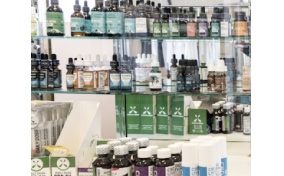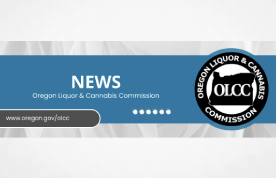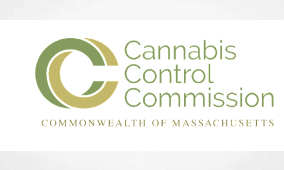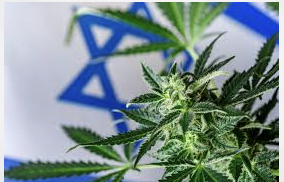Cannabidiol (CBD) is a popular natural remedy for many ailments, such as pain, inflammation, anxiety, depression, and insomnia. It has also been used to treat seizures and other neurological disorders. It’s available in many forms, including tinctures, topical products, edibles, and beverages.
As a first-time consumer, it’s normal to be curious and confused about the use of cannabis products. There’s an information gap about CBD consumption, from wanting to know which products would work best for your needs to a lack of clarity on state and federal regulations on cannabidiol consumption. As a result, companies like Green Bee life are trying to bridge this informational gap by providing video-based educational resources, blogs, and product guides on cannabis consumption.
Today’s article will focus on the legal matters you should know before taking CBD. While CBD is generally considered safe and non-addictive, it can have profound legal implications if its consumption breaches the law. Keep reading to learn more.
What Is CBD?
CBD stands for cannabidiol, a chemical compound found in cannabis plants, such as hemp and marijuana. Unlike its more famous cousin, THC (tetrahydrocannabinol), cannabidiol doesn’t have any of the psychoactive properties that THC does. So, it won’t get you high. Instead, it’s known for its potential medical benefits.
The different types of CBD include:
- Isolate CBD
It is a highly concentrated form of CBD isolated from other compounds found in the cannabis plant. It’s the purest form of cannabidiol, containing no other substances. It’s also generally considered the safest form as it doesn’t have any psychoactive compounds found in other forms of cannabis.
- Broad-Spectrum CBD
Broad-spectrum CBD is like full-spectrum CBD but doesn’t contain any trace amounts of THC. It has all the other compounds in the cannabis plant, making it more complete than isolate CBD. These compounds may work synergistically with CBD to provide additional medical benefits.
- Full-Spectrum CBD
It is the most popular form of cannabidiol. It contains all the compounds found in the cannabis plant and other cannabinoids, terpenes, and flavonoids.
This type of CBD is known to provide an entourage effect. That’s because the compounds in the cannabis plant work together synergistically to produce a more significant impact than if the compounds were taken individually.
Before taking CBD, find out more about these different types of cannabidiols, as each type has other properties and benefits for overall health and well-being.
Considerations Before Taking CBD
As with any other supplement, it’s always good to be aware of the legal considerations and regulations around taking CBD. The following are some of them:
- CBD Is Not Legal Everywhere
The legality of cannabidiol is complicated and varies depending on where you live. In the United States, CBD is legal in states that have legalized recreational and medical marijuana. However, it’s illegal in states that haven’t, such as Idaho, Nebraska, and South Dakota.
CBD is a Schedule I drug under the Controlled Substances Act, which means it’s illegal to possess or use without a prescription. The government also considers them to have no accepted medical use and a high potential for abuse. However, the 2018 Farm Bill made CBD derived from hemp plants legal in all 50 states. Even though the bill made it legal on the federal level, individual states may have laws and regulations on the same.
In India and China, CBD is illegal. On the other hand, in countries like Canada and the UK, it’s legal but may be subject to different regulations. For example, in the UK, it’s legal to buy and sell cannabidiol products as long as they contain less than 0.2% THC and are derived from hemp.
It’s also important to note that some countries restrict the amount of CBD imported. So, before consuming CBD, you must ensure that you comply with local laws regarding its use. Failure to comply could result in fines, lawsuits, and other legal consequences.
- You May Require Prescriptions To Buy CBD Products
In some states and countries, you may need a prescription from a doctor to purchase cannabidiol products. If you live in Australia, you can only take CBD if a doctor prescribes it, and it’s only allowed in certain forms.
For US residents, the FDA has only approved a handful of CBD-based medications for treating certain medical conditions, such as seizures associated with two rare forms of epilepsy. However, obtaining a prescription from a qualified healthcare provider is still required in many areas because CBD can interact with other medications and have side effects.
- CBD Products Should Contain Less Than 0.3% THC
THC is a psychoactive compound found in cannabis plants that produces a feeling of getting high. While some cannabis products contain high levels of THC, CBD products are typically produced with minimal levels of THC, usually less than 0.3%. This low level of THC isn’t enough to cause any psychoactive effects or highness. It works well for those looking for the potential health benefits of CBD without having to experience the high.
Cannabidiol products are legal in the United States if they contain less than 0.3% THC. It means that products that have more than that are considered federally illegal and could result in fines or other legal penalties. To avoid such inconveniences, check that the product contains less than 0.3% THC. This information is usually found on the product label or the company’s website.
As you find out the THC level of the CBD products you’d like to use, research the company. Ensure it’s reputable and that the cannabidiol product is tested for safety and quality. Note that some companies use synthetic CBD, which poses a safety risk.
Only take products from companies that have third-party lab testing and are certified for quality and safety. Additionally, as a precaution, look for products made from organic, non-GMO hemp that is free from pesticides and other contaminants.
- Age Restrictions May Apply
Take note that CBD is still classified as a controlled substance. As such, you must be aware of any age restrictions that may apply in your state. The legal age for purchasing and using CBD varies from state to state, but generally, it’s 18 years or older. However, some states, like Alaska, have set a minimum age of 21.
- CBD May Show Up On Drug Tests
Although CBD is legal, it may still show up on drug tests. That’s because drug tests typically look for THC, and some cannabidiol products contain trace amounts of THC. Though these amounts are generally insufficient to produce any psychoactive effects, they may still be detectable in drug tests. As such, if you are subject to drug testing, you should be aware that using CBD products may cause you to fail specific drug tests. If that happens, you may have no legal grounds to object to the results.
Summary
CBD is a popular natural remedy for many common ailments. However, due to the complexities of the legal landscape surrounding it, consumers need to understand the legal issues surrounding its use. You can start by finding out the legal status of CBD in your area, the different types of CBD, the legal amount of THC, and more, as discussed above. By familiarizing yourself with the legal matters surrounding CBD, you can ensure that you use the product safely and legally.




















